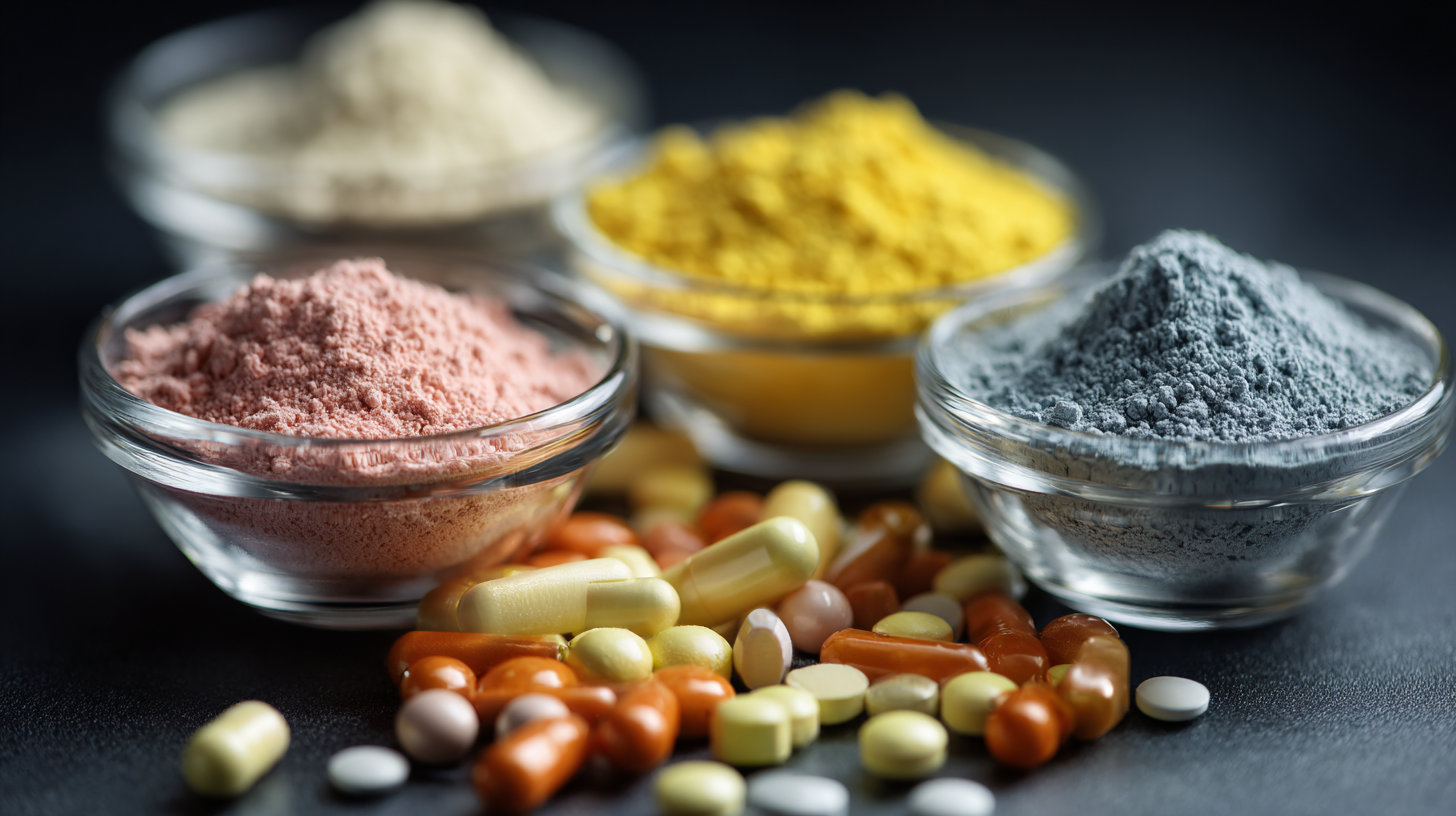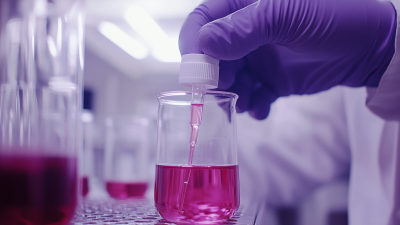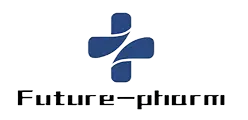
5 Expert Tips to Source High-Quality Pharmaceutical Raw Materials in 2023
In the pharmaceutical industry, the quality of raw materials is paramount to ensuring the efficacy and safety of medications. As manufacturers navigate a complex landscape influenced by regulatory changes, global supply chain challenges, and increasing demands for transparency, sourcing high-quality pharmaceutical raw materials has become more critical than ever. In 2023, companies must adopt strategic approaches to identify reliable suppliers, assess material quality, and manage costs effectively. This blog will provide five expert tips to guide businesses in sourcing superior pharmaceutical raw materials, emphasizing best practices and innovative solutions that can enhance quality assurance while maintaining compliance with industry standards. By understanding these essential strategies, pharmaceutical manufacturers can position themselves to meet the evolving demands of the market and deliver safe, effective products to healthcare providers and patients alike.

Identifying Reliable Suppliers for Pharmaceutical Raw Materials
When sourcing high-quality pharmaceutical raw materials, identifying reliable suppliers is crucial for maintaining product integrity and ensuring compliance. One effective tip is to conduct thorough due diligence on potential suppliers. This involves checking their certifications, such as GMP (Good Manufacturing Practice), and reviewing their history in the industry. Suppliers with a solid track record demonstrate reliability and adherence to safety standards.
Another important aspect is to establish strong communication channels. Engaging in direct conversations with suppliers can provide insights into their operational practices and responsiveness. This transparency allows you to assess their commitment to quality and their ability to meet your specific needs. Additionally, consider visiting the supplier’s facility if possible, as firsthand observation can verify their manufacturing processes and quality control measures.
Lastly, leveraging industry networks can be invaluable. Joining professional organizations or forums can help you connect with other professionals who can recommend trustworthy suppliers. These relationships often provide insight into supplier reputations and can lead to more informed decisions, ultimately ensuring that you procure the best raw materials for your pharmaceutical products.
Evaluating Quality Assurance Standards in Raw Material Sourcing
When sourcing high-quality pharmaceutical raw materials, evaluating quality assurance standards is paramount. Organizations must implement rigorous criteria that go beyond mere compliance with regulatory bodies. A comprehensive understanding of Good Manufacturing Practices (GMP) is essential, as these standards provide the framework for ensuring the safety and efficacy of raw materials. Manufacturers should be able to demonstrate adherence to GMP through documented processes, including ingredient traceability, contamination controls, and stringent testing protocols.
Moreover, it is critical to assess the certifications held by suppliers. ISO certifications, for instance, validate that a supplier meets international quality management standards. Working with suppliers who are certified by recognized authorities not only bolsters confidence but also minimizes risks associated with subpar materials. Regular audits, both internal and external, should be part of the quality assurance process to guarantee ongoing compliance and to identify areas for improvement. By prioritizing these quality assurance measures, pharmaceutical companies can ensure that they source raw materials that meet the highest standards, ultimately safeguarding patient health and enhancing product integrity.
Quality Assurance Standards in Pharmaceutical Raw Material Sourcing (2023)
Leveraging Technology to Streamline the Sourcing Process
In 2023, leveraging technology is crucial for pharmaceutical companies aiming to streamline their sourcing of high-quality raw materials. According to a recent report by the International Society for Pharmaceutical Engineering, 57% of companies are now adopting digital procurement tools to enhance their supply chain efficiency. These technologies not only reduce lead times but also improve traceability and compliance, which are critical in the highly regulated pharmaceutical industry.

Moreover, artificial intelligence (AI) and machine learning are revolutionizing the raw material sourcing process. A report from Deloitte highlighted that organizations using AI-driven platforms can analyze vast amounts of supplier data, enabling them to make more informed decisions and predict potential risks. This capability is particularly important in a sector where the integrity of raw materials can significantly impact product quality and patient safety. As companies increasingly integrate these technological solutions, we can expect to see a marked improvement in sourcing practices, setting a new standard for quality assurance in pharmaceutical manufacturing.
Understanding Regulatory Compliance for Pharmaceutical Inputs
Understanding regulatory compliance is crucial for sourcing high-quality pharmaceutical raw materials, especially in the evolving landscape of 2023. Recent warnings from the US Food and Drug Administration have highlighted ongoing challenges with current good manufacturing practices (cGMP). Several companies have faced scrutiny for failures in compliance, including refusing inspection entry and falsifying documents. This underscores the need for stringent adherence to regulatory standards to ensure the integrity of pharmaceutical ingredients.
Moreover, the recent executive order aimed at promoting domestic drug manufacturing signifies a shift towards streamlining regulations for pharmaceutical production. This regulatory relief is expected to facilitate compliance and improve local sourcing efforts. Industries must navigate these changes carefully while maintaining quality and adhering to safety standards. According to a systematic review published in a recent industry report, 60% of companies report significant compliance challenges, indicating that regulation not only shapes operational strategies but also affects supply chain decisions. As manufacturers work to align with these evolving regulations, the quality of raw materials sourced will ultimately play a pivotal role in the success and safety of pharmaceutical products.
Building Long-Term Relationships with Raw Material Suppliers
Building long-term relationships with raw material suppliers is crucial for pharmaceutical manufacturers aiming to maintain product quality and consistency.
Establishing trust and transparency with suppliers not only facilitates better communication but also ensures timely deliveries and compliance with stringent regulations.
Engaging in regular dialogue helps in understanding their capabilities and challenges, which can lead to improved service and innovation in sourcing strategies.
Moreover, investing time in collaborative efforts, such as joint problem-solving and sharing forecasts, can foster a sense of partnership.
This approach encourages suppliers to prioritize your needs, ensuring that you receive high-quality materials consistently.
Additionally, evaluating supplier performance regularly and providing constructive feedback can strengthen these relationships, making it easier to navigate potential disruptions in the supply chain.
Building these robust partnerships will enable pharmaceutical companies to thrive in a competitive industry while promoting sustainability and ethical sourcing practices.

Related Posts
-

Evaluating the Best Pharmaceutical Chemicals: A Comprehensive Buyer’s Guide
-

7 Best Strategies for Sourcing High-Quality Pharmaceutical Intermediates in 2023
-

The Future of Drug Raw Material Innovation in Pharmaceutical Manufacturing
-

Solutions for Sourcing the Best Pharma Materials in the Industry
-

Unique Uses of Pharmaceutical Chemical Powder in Modern Medicine: Unveiling Real-World Applications
-

Unique Uses of Pharmaceutical Intermediates in Drug Development
